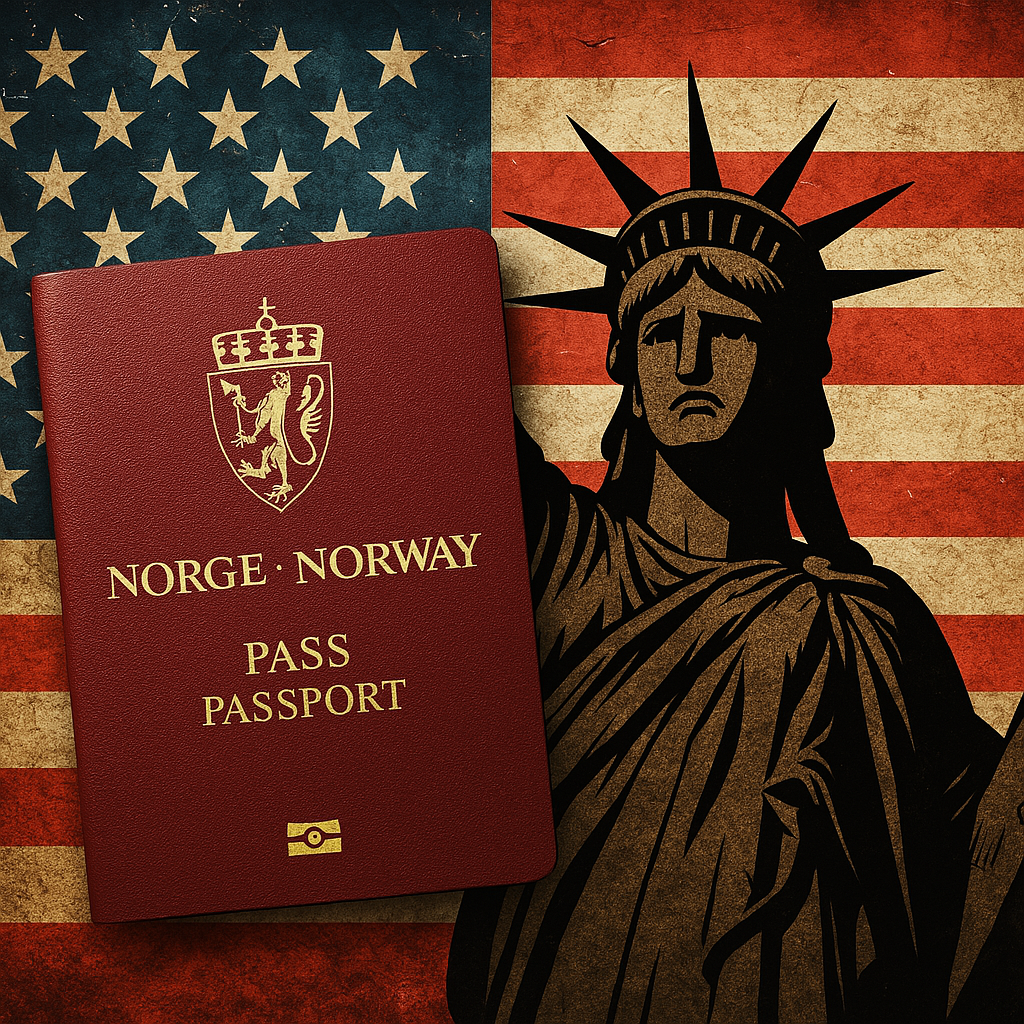Norway Joins European Allies in Warning Citizens About U.S. Travel
Norway joins other European nations in warning citizens about U.S. travel, citing arbitrary entry denial and lack of gender recognition. The advisory highlights risks for LGBTQ+ travelers and growing concern over U.S. immigration practices and human rights.

A Civic-Ethical Analysis
Norway has become the latest European nation to revise its travel advisory for the United States, issuing a warning about heightened entry restrictions and concerns surrounding gender recognition. This move, following similar guidance from Germany, Finland, Denmark, the Netherlands, Belgium, and the United Kingdom, signals a broader shift in how U.S. policies are perceived by international allies.
"We have today updated our travel information for the U.S. The update concerns entry requirements," said Laik Hanbaly, spokesperson for the Norwegian Ministry of Foreign Affairs.
The advisory clarifies that possessing a valid visa or Electronic System for Travel Authorization (ESTA) does not guarantee entry. U.S. immigration officials retain discretionary power to deny admission, sometimes detaining or deporting travelers—especially those whose gender identity does not align with documentation.
This policy landscape invites deeper scrutiny. Through a layered ethical and civic analysis rooted in classical and contemporary frameworks, we ask: What kind of society does this produce?
1. Grammar: What Is Happening?
Norway's travel advisory highlights three core issues:
- Discretionary Entry Decisions: Even with valid documents, entry into the U.S. remains subject to immigration officers' judgment.
- Gender Recognition Limitations: The U.S. visa and ESTA system only recognize the gender assigned at birth, failing to accommodate travelers with updated gender identities.
- Human Rights Risks: Detainment and deportation of European travelers—especially those from LGBTQ+ communities—have prompted foreign governments to alert citizens.
These developments reflect not only legal barriers, but also the U.S. government’s broader posture toward identity, power, and discretion.
2. Logic: Systemic Consequences and Contradictions
Discretionary Enforcement: The U.S. immigration system grants officers broad authority at ports of entry. This creates an environment of legal ambiguity, where rights and expectations become fluid. Travelers, even from allied nations, may be denied entry without clear justification.
Gender Policy Conflict: Many European nations allow citizens to update their legal gender markers. In contrast, U.S. immigration law currently recognizes only binary, birth-assigned gender—a discord that places trans and non-binary travelers in jeopardy.
Reputational and Diplomatic Strain: When democratic allies warn their citizens about travel to the U.S., it reveals a declining trust in American institutions. The message is clear: travelers may face arbitrary treatment inconsistent with international norms.
3. Rhetoric: Ethical Evaluation Through Three Frameworks
John Adams' Moral Algorithm:
"Government is instituted for the common good... and not for the profit, honor, or private interest of any one man, family, or class of men."
Discretionary border policies and outdated gender norms do not enhance public safety. Instead, they serve private ideological interests, often rooted in culture wars. This fails the test of the common good.
John Rawls' Veil of Ignorance: Would these policies be just if we didn’t know our gender identity or citizenship? Clearly not. They impose undue harm on travelers who happen to be trans, non-binary, or from vulnerable communities. They fail the fairness test.
Aristotle’s Virtue Ethics: A virtuous society cultivates dignity, justice, and courage. These policies encourage fear, dishonesty, and state domination. By punishing people for being truthful about their identity, they fail to nurture moral character or civic virtue.
Civic and Economic Analysis
- Chartalism & MMT: Immigration enforcement isn't a budgetary issue—it’s about how a government allocates real resources. There is no fiscal justification for policies that harm individuals while offering no measurable benefit.
- Cantillon Effect: These policies disproportionately affect marginalized groups, reinforcing structural inequality by allowing discretionary enforcement.
- Ostrom’s Commons Governance: There is no participatory or transparent process; decisions are centralized and unaccountable.
- Public Choice Theory: These rules often reflect political incentives rather than public benefit—appealing to domestic constituencies at the expense of international justice.
- Subsidiarity Principle: Instead of empowering individuals or local actors (like embassies), the system concentrates authority at federal choke points.
- Buckminster Fuller's Anticipatory Design: These policies fail to anticipate the realities of a global, diverse world. They reflect outdated assumptions rather than adaptive design.
- Civic Republicanism: True liberty is freedom from arbitrary power. U.S. entry policies subject travelers to precisely that kind of power.
- Post-Autistic Economics: Ideological rigidity dominates evidence-based governance. There is no data showing that gender identity recognition undermines national security.
- Donella Meadows' Leverage Points: The problem lies in the deeper paradigm—the U.S. government still operates from a framework that prioritizes conformity over human dignity.
Conclusion: What Kind of Society Does This Produce?
A society built on these policies is one where:
- Power is opaque and unchecked.
- Marginalized groups are punished for their identity.
- International trust is eroded.
- Freedom is replaced by fear and unpredictability.
The United States must ask itself: Are we cultivating a republic of virtue and liberty—or merely protecting the interests of a narrow political class? The answer begins at the border.
